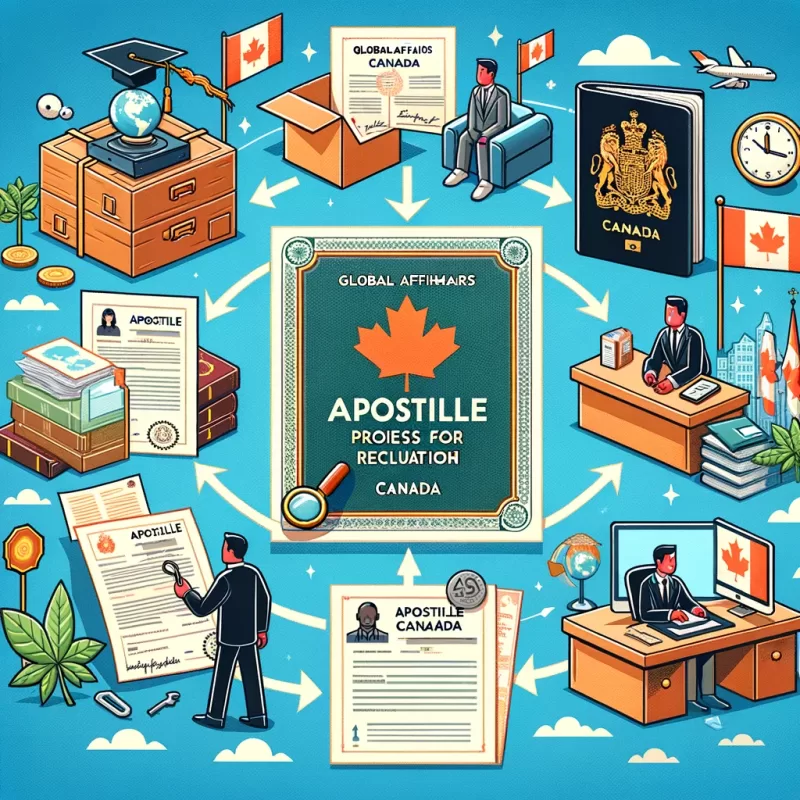With Canada's recent accession to the Hague Apostille Convention as of January 11, 2024, the process of authenticating documents for international use has been streamlined, particularly for those planning to relocate abroad. This significant development simplifies the validation of Canadian documents for use in other member countries of the Hague Convention, ensuring they are recognized as genuine without the need for additional certification by the consular office of the destination country.
Understanding the Apostille Process
The apostille process involves obtaining an official certificate that authenticates the origin of a public document. In Canada, this can be done through Global Affairs Canada or competent provincial authorities where the document was issued, including Alberta, British Columbia, Ontario, Quebec, and Saskatchewan. This flexibility allows for a more localized approach to document authentication, making the process more accessible to individuals across the country.
Essential Documents for Relocation
When relocating to a foreign country, several key documents typically require apostille certification:
- Birth Certificates: Essential for proving identity and nationality.
- Marriage Certificates: Required for validating marital status.
- Educational Documents: Such as diplomas and transcripts for academic or professional purposes.
- Criminal Record Checks: Often needed for employment or residency applications.
- Divorce Decrees: Necessary in cases where one needs to prove marital status or custody arrangements.
- Death Certificates: For estate settlement or inheritance matters abroad.
- Powers of Attorney: If managing affairs or property in another country.
- Medical Records: Sometimes required for visa applications or medical registration.
- Corporate Documents: For those conducting business or investment activities overseas.
The Apostille Process in Canada
To obtain an apostille in Canada, the document must first be issued by an authorized official or institution. Once you have the original document, you can apply for an apostille through Global Affairs Canada or the respective provincial authority, depending on where the document was issued. The process involves submitting the document for verification, after which the apostille certificate is attached to it, confirming its authenticity for international use.
Global Document Solutions: Your Apostille Partner
At Global Document Solutions, with over three decades of dedicated service, we understand the intricacies of document authentication and the apostille process. Our experienced team is here to guide you through every step, ensuring a smooth and hassle-free experience. Whether you need assistance determining the correct authority for your document authentication or require expert advice on the specific documents needed for your relocation, Global Document Solutions is your trusted partner.
We offer comprehensive services, including document retrieval, professional translation, and direct submission for apostille certification, tailored to your unique needs. Our expertise and commitment to excellence ensure that your documents are processed quickly and accurately, providing you with peace of mind as you prepare for your international move.
Conclusion Trust The Experts @ Global Document Solutions
Canada's participation in the Hague Apostille Convention marks a significant milestone for individuals and businesses alike, offering a simplified process for authenticating documents for international use. For those relocating abroad, understanding the apostille process and the documents required is crucial. With the support of Global Document Solutions, you can navigate this process effortlessly, benefiting from our extensive experience and personalized service. Let us help you ensure that your documents are ready for your new adventure abroad.


